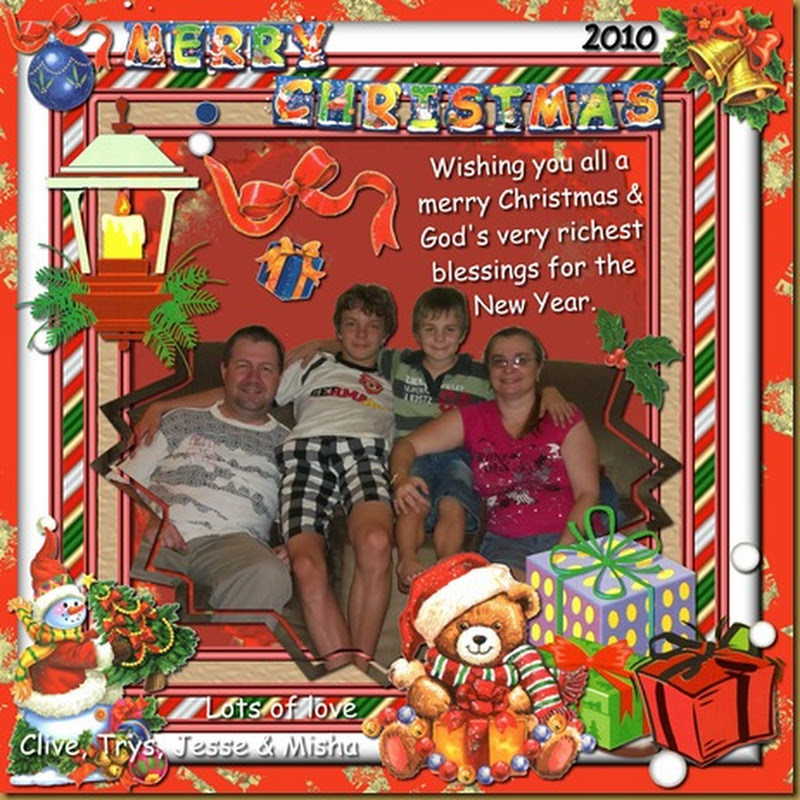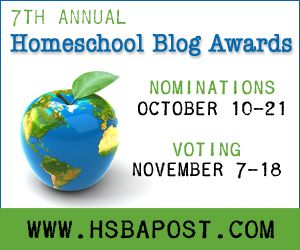NEVER take the road people want u to. It's your life, ride your own way. U may not have a limo, but feel happy to ride on your own bike.

With our eldest currently in grade 8 and still at the start of his high school years, the time has come for us to make a decision about what direction we’re going to take getting him through matric with University Exemption. We started him up with Le-Amen Education Centre for IEB, but unfortunately the books that were supplied were not very homeschool friendly & are not working for him so we’ve had to add additional material to help him.
During a recent talk at Dayspring College I learnt the accepted options for Umluzi Matric Certificate with the following 4 boards that oversee schooling:
- Afrikaans
-
GDE (Gauteng Department of Education) ~ According to the information received the standards of the GDE are falling. At present you need 2 x 40%, 2x 35% and 3×30% to pass and receive a matric certificate. But what is required to get those marks is very little work at all. Children who get high levels in the matric certificate are often failing at first year university level because the standard of English and math have fallen so far that they cannot cope without extra help. If the child is in a good school where the standards are high, this may not be a problem – just depends on the school and what they teach as far as skills. The concern raised was that in the GDE exams, a child could give very simple answers and still pass. For example, ‘Describe rain’ could be answered with “The earth gets wet” and be correct.
-
IEB (Independent Examination Board) ~ Many of the private schools do the IEB Exams.
-
Homeschooling ~ Within the homeschooling arena there are many options, which include Cambridge, ACE, Delta, Brainline, Le-Amen, etc.
1. IEB Matric
IEB is still a good system but as a homeschooler portfolio of work must be compiled in addition to doing exams, something that is hard to do. But if you are in the IEB system and are happy with the standard of what is being taught and can compile the portfolio, then your child will be fine. The answer to ‘Describe rain’ here would require at least a discussion of cumulus clouds and the rain falling because of temperature changes… While not as comprehensive as might be really good, at least they have to write essays.
The IEB Matric Examinations can be written through the following education centres:
-
Hatfield Online Christian School offers the benefit of receiving a quality education and the freedom of studying in your own time and on your home computer.
-
Brainline Learning World is an online home school/distance learning system that offers grades 1-12 (matric) in both English and Afrikaans – presenting the learner of the digital age with an alternative form of schooling.
-
Delta Education is an educational product and service provider.
-
Le-Amen Education Centre is registered with the Department of Education, the IEB as well as provisionally accredited at UMALUSI. They serve as a monitoring & support centre for home-school students from grade K-12. The education of the students remains the responsibility of the parents. They supply the curriculummaterial & exam papers. At the end of the school year they issue the student with a school report.
-
Login Education offers an accredited, integrated online and pc based home schooling curriculum for grades 0 – 6, plus other extra curricular courses to help ensure your child is equipped for today’s globalized marketplace! Grades 9 – 12 will be available in 2012.
Study Material & Teaching Aids:
-
Thutong South African Education Portal for information, curriculum, and support materials to the South African schooling and FET College community.
-
The Learning Channel offers a comprehensive range of Grades 10, 11 and 12 courses that cover all the Learning Outcomes, Assessment Standards, knowledge, key concepts and skills as reflected in the National Curriculum Statement — everything you need to make a success of your world!
The Learning Channel programmes consist of three integrated components:
These courses have been carefully designed so that learners can complete the activities on their own, with a partner, in a group or as a class, making it a versatile tool to be used at home or in the classroom. Worked solutions and answers are included so learners can self-assess their progress.
-
MindSet Learn offers study materials, Learn Xtra Gr. 12 Video Lessons, Past Exam Papers & Detailed Study Notes as well as TV Guide for the DSTV Learning Channel 319.
2. Cambridge
CIE is part of Cambridge Assessment, Europe’s largest assessment agency and a department of the University of Cambridge. Cambridge Assessment was established in 1858 as the University of Cambridge Local Examinations Syndicate.
The Cambridge exams seem to be the best option for homeschoolers who intend to study further. Cambridge is a very skills based system so that when the student is finished with the exams, they will be ready for university and in most cases the first 6 months of university will be easy because they’ve already done the work.
Details of the Cambridge Qualifications System
- IGCSE (International General Certificate of Secondary Education); aimed at students aged 14 – 16
In Grades 10-11 a student will study to take the ICGSE exams which used to be called O levels. These exams can be taken over a period of 2 years with students taking 6-7 subjects one of which must be English as a 1st language. They must also do a 2nd language. Math usually takes two years of prep so it should be started in grade 10 to allow enough time. The student will prepare for 3-4 exams the first year and 3-4 the second. They can control the exam time as there are 2 exam times each year, one in June and one in October. From what I understood you can only sit exams in 2 of the four potential times and once you pick June or Oct you must take the second set of exams at that time too. The ICGSE exams are the equivalent of Grade 10-12 in the GDE system so the level is quite high. - AS Levels; aimed at students aged 16 – 19
In Grade 12 a student will study for the AS exams. They must do between 2 and 5 subjects over 2 years depending on what they intend to do in the future. One of the subjects MUST be English as 1st language.If a student does very well on a subject at IGCSE level (B or A) they can “carry” it over as an AS level subject. This means that they will only write for 4 subjects at the end of their AS course and one of their IGCSE subjects can count for the 5th.
- A Levels
To achieve the equivalents of “A Levels” the South African student needs to complete a Grade 13, but most students do not take this option as it is not necessary for matric exemption and university exemption.
Different Pathways through Cambridge
Once a student gets to Grade 10-11 they need to have an idea of where they are headed because there’s no point doing extra AS exams if they don’t intend to go to university. Any student not headed for college or university can probably stop at the end of the ICGSE exams. Some of the ICGSE levels can be done as either core or extended. If the student intends to do AS levels for a topic, they need to do it at the extended level. Otherwise they can do core as the certificate does not indicate which one they have done. They want to get the best results possible and the highest marks so pick core where possible.
Cambridge has fused Grade 10 and 11 IGSCE, in that a student takes ±7 subjects and except for Math, will be able to complete 3 in the first year and 3 in the second year. They thus complete 2 years worth of work in one year for 3 subjects and write the exam, whereas the GDE schools require an exam for each subject for each of those years.
Remember the level is GDE Grade 10-12 so one must be careful not to take too many academic subjects at once as it is a lot of work. The initial study can take longer say 18 months before the students start taking exams but once the students take the first exams, they have one year before they have to finish the exams. Do not start a young student on the ICGSE as maturity plays a role and that any kid before about 15-16 is not mature enough to do the work no matter how smart they are. In the case of an immature student it is better to wait and do them later. There’s no problem with doing the ICGSE at 16-17 and the AS levels at 18-19.
The alternative is to do the foundation level exams for Grade 9 just 1 or 2 topics in order to gain some of the experience that is necessary before entering proper ICGSE. It is also important to get advice from people who understand how the Cambridge exams are marked as that has a big influence on how well your student does.
SAQA (South African Qualifications Authority) Requirements for Umaluzi Conversion:
-
7 ICGSE exams
-
2 AS exams (1 must be English 1st Language)
Once the student is done with the above, they can approach SAQA with their certificates and they will receive a school leaving certificate that can be used to get into college.
For science classes at ICGSE level, most practicals can be done at home, if not seek a tutor to help you. The student can take the alternative to prac exams that don’t require practicals to have been done BUT this is not a good idea if the student intends to do the subject at AS level later on. At the AS level, should use a tutor who understands the Cambridge system and has the right equipment when necessary. During the exams the student will have to use proper lab equipment and without the experience of using, they will probably not do well.
HESA (Higher Education of South Africa) Requirements for an exemption:
-
6 ICGSE exams
-
4 AS exams (1 must be English 1st Language)
Pass rate = A – D however, it is better to have as many as possible AS exams in case your student fails one of them. One of the other requirements is that 2 languages are done. One as First Language and the other must be a official language which is Afrikaans and the African languages.
To get an exemption the student may not take longer than 2 years to do their ICGSE & AS exams. They can do IGCSE in May June and then do AS in Oct /Nov in the following year, i.e. they don’t have to then be restricted to the same exam sitting. In addition, the student should probably do 5 AS exams so if they do very poorly in one exam, they can drop it from the HESA application.
Once the student is done with the above, they may approach HESA and get a matric exemption certificate. However, the results and the points allocated based on them will determine whether the student is accepted into a particular department, so ensure they know ahead of time what would be required. Contact the department at the university the student wants to attend to find out the exact requirements. Ask for the person in charge of evaluating Cambridge entrance.The universities allocate points based on results, so the higher the results, the better their chance of gaining entry. Also they get more points for more topics. They don’t allow for the fact that AS levels are higher than a GDE matric so your student needs to get the best results possible to get in to their chosen department.
The one requirement from HESA that is difficult to meet as homeschoolers, is Life Orientation. At a fee, some colleges like the BIDC do a Personal Development Program that does meet the requirements for university entrance. This program is project based and is easy to replicate for our homeschool environment. Some IEB schools complete the Gr 10-12 curriculum in Life Orientation in grade 11 (Rhodean) and the students then write off the subject, thus easing the load for grade 12.
Sue mentioned that Life Orientation certificate was required by law. Most of her students don’t bother to get it and have not had a problem at all. The universities apparently bother to ask for it. She has had 2 students whose parents organised for it to be done at one of the schools that offered it. Additional feedback received suggested that, according to admission officers at Wits and Tukkies the Cambridge matric (AS levels) is considered an international qualification (i.e. not South African) and therefore the pupils do NOT need life orientation on their certificate. This may or may not be the case at other universities, so you would need to check with the institution where your wishes to study.
For more information visit the HESA Requirements for Exemption Certificates page.
Requirements for an exemption without ICGSE or if you took more than 2 years to do ICGSE or your ICGSE results were bad:
- AS certificates (1 must be English 1st Language)
Requirements for university with poor ICGSE and AS exam scores:
- 2 A level exams will get you a university exemption BUT it may or may not get you into a particular department at university.
What subjects must should a student take?
According to the guidelines set by the exemptions board of South Africa, your student needs to choose subjects according to the group laid out. For example:
- Compulsory Subjects:
English
Afrikaans (or another second language)
Maths or Maths literacy - Discretionary Subjects: (two from the following list)
A third language or Biology, Chemistry, Mathematics or Physics;
Art, Economics, Geography, History, Music
Accounting, Business Studies, Computing, Design and Technology or Further Mathematics;
However, practical subjects are not available to some homeschoolers who prefer to do the Cambridge Homeschool Matric independently i.e. without the help of a private college. While Cambridge offers over 70 subjects at IGCSE and AS level, not all can be taken in South Africa.
How to actually get the student through Cambridge:
There are several paths one can take. The student can attend a study centre like Daysprings, but that will cost ±R30,000 per year. There are also several schools that will charge in the region of R3000-3500 per subject for the books, a syllabus, give the student assignments that they will assess and register the student for exams with an exam centre. The exam fees are extra Some schools have their own exam centres and others will send the student to an independent centre.
- Theocentric Christian Education (TCE) ~ offers a fully structured system that ends with a Cambridge Grade 12 (Higher International General Certificate of Secondary Education). This will give access to universities in S.A. They also offer a British A Level (over Grades 12 and 13) which will give access to any university in Britain as well as our local universities. The Curriculum is based on the 27 character qualities of God and grounded on the Biblical Christian worldview, from Grade 0 to Grade 12 or 13.
- Brainline Learning World is an online home school/distance learning system that offers Cambridge IGCSE & Gr. 12 in both English and Afrikaans – presenting the learner of the digital age with an alternative form of schooling.
- Love 2 Learn ~ Feedback received is that that English in Love 2 Learn was good enough for university.
Alternatively parents can source the books, set up the syllabus and register the student for the exams and save quite a bit of money. Below is a list study centres that provide support, some exam centres and so on. Also some websites with past papers for Cambridge exams. Sue said that many of her teachers are willing to take extra pupils in the afternoons or she can give us the details of a tutoring service that will find a tutor. Also her teachers can do practicals for extra students where they need to do science at that level.
-
British International Distance College ~ BIC follows the international syllabi set by Cambridge International Examinations (CIE). They supply a work program and textbook. The student receives 6 assignments that need to be submitted for assessment. For more information email or contact them on (011) 706-7199.
-
CL Education ~ is an online distance college linking you to prestigious locally and internationally recognised AS/A-Levels and O-level qualifications through Cambridge Independent Examinations (CIE). However, they do not offer the Foundation (Gr. 8-9) course. For more information email or contact Chris Forster on 083 308-8167 or email or contact Bronwyn Ansell on 083 381-0958.
-
Dayspring Cambridge International Study Centre ~ offer students a complete qualification in order to obtain a school-leaving certificate that is recognised by South African and all International universities. Many of the teachers are willing to take extra pupils in the afternoons. They are situated on 23 Jim Fouché Road, Constantia Kloof, Roodepoort, 1724. For more information contact Sue on (011) 675 – 2250 or 083 947-7581.
-
L.S.I. College a Cambridge attached centre situated in 2nd Floor, 77 Park Drive, Northcliff. Correspondence Students have access to the LSI College’s Tuition Services according to the LSI Calendar, in the evenings and over weekends on an appointment basis with the teachers. For more information contact them on 072 369-0957
Two other things Sue mentioned was that she is willing to order the work program books from CL Education on our behalf when she orders for her students. These work program books help you to teach the text books which are written for teachers not homeschoolers. They cost about R1075 (I think) per subject. She did however say that they are not necessary for all the subjects but definitely for Maths and Science as they are quite difficult. The Maths book give you little explanation and just the answer and you have to work out the problem yourself whereas the work program includes how to get to the answers.
Additional Study Material & Teaching Aids:
-
University of Cambridge International Examinations is the world’s largest provider of international education programmes and qualifications
-
Extreme Papers for past exam papers.
-
Free Papers for past exam papers.
Examinations
Exams can be written in June & November. The advantage is that some subjects can be written off in either June or November, leaving more time to focus on the bulkier subjects like Math, Biology and Physical Science. Bear in mind that some subjects like Afrikaans & Combined Science (a.k.a. Physical Science) exams may only be written in the November sitting.
Registrations are due by 15 Jan for May/June and by 15 August for October/November and exam entry fees for 2011 were £27.15 per subject and £54.30 for Physical Science. The late entry fees were an additional £13.35 pounds. Although this may seem expensive, it does provide for an internationally accredited school leaving certificate.
Registered exam centres:
-
British Council ~ for private registrations.
British Council Johannesburg, Ground Floor, Forum 1, Braampark, 33 Hoofd Street, Braamfontein, Johannesburg 2001; PO Box 30637, Braamfontein 2017; Telephone +27 (11)718 4300; Fax +27 (11)718 4400; E-mail; Director South Africa – Mr David Cordingley; Director Programmes Sub Saharran Africa – Mr Chris Brown
British Council Cape Town, 3rd Floor, Associated Magazines House, 21 St John’s Street, Cape Town 8001; PO Box 1469,Cape Town 8000; Telephone +27 (11)460 6660; Fax +27 (11)460 6691; E-mail; Director – Ms Jean September
- Andrew’s Academy ~ in Windsor Glen; Email or contact Caryn Andrews on (011) 431-0631
-
Alma Mater Akademie ~ Email or contact them on (011) 660-7567
-
Word of Life Christian School ~ in Vereeniging; Email
-
Ashton International College ~ 47 Beryl Street, Farramere, Benoni; Contact them on 011 395 2070 / 011 395 3435
-
Greenwich College ~ 1A Cross Place, Bryanston; Email or contact them on (011) 463 9779 or (011) 463 9706.
Study Material & Teaching Aids:
-
University of Cambridge International Examinations is the world’s largest provider of international education programmes and qualifications
- Extreme Papers for past exam papers.
- Free Papers for past exam papers.
3. Scholastic Aptitude Tests (SAT)
The following curricula can be used for SAT preparation:
-
ACE (Accelerated Christian Education) ~ Students wishing to enter a University and students from non-Silver Status schools and homeschoolers must write either the SAT (Scholastic Aptitude Test) or the NBT (National Benchmark Tests)
-
Switched-On Schoolhouse® is a comprehensive, Bible-based curriculum that offers computer-based learning for grades 3-12. With animation, video clips, and other fascinating multimedia, Switched-On Schoolhouse is the perfect homeschool curriculum for today’s generation. With this flexible, best-selling curriculum, you can customize student learning to fit individual educational needs. GED Preparatory Courses are also available.
It has recently come under my attention that the universities are unwilling to accept students on the strength of SAT scores alone. They need to have some form of acceptable high school diploma in addition to SAT scores. “My daughter did exceptionally well on her SAT’s but neither HESA nor the Wits enrolment office were prepared to give her university exemption without external proof of what she had completed for her high school education.” However, this can be overcome by utilising online high schools.
Accredited Online High Schools:
-
Alpha Omega Academy is an accredited online academy for grades K-12, with thousands of students enrolled worldwide. Qualified teachers, along with courses, bring expertise and a fresh, interesting approach to learning. AOA offers online academy students four award-winning, Christian curriculum options. AOA offers electronic curriculum with Switched-On Online® andSwitched-On Schoolhouse and print-based curriculum with LIFEPACand Horizons. Each Christian curriculum offers unique benefits and features for your student’s education.
-
Laurel Springs School is a K-12 online private school that honours the talents, learning styles and interests of all our students. With more than 20 years of experience, we have the expertise to ensure your child receives an excellent private school education. Our students are fully supported by qualified, caring teachers and staff, and are connected to a global community of learners. Laurel Springs is a private school accredited by the Western Association of Schools and Colleges (WASC).
-
Keystone School is an online high school and middle school that serves a wide range of students who need flexibility. They offer over 120 teacher-supported online high school and middle school courses. Students can enroll any time of the year either full-time to earn an accredited online high school diploma or part-time to supplement a traditional school or homeschool curriculum.
Please Note: Parents who want to go the route of a SAT homeschool matric, need to contact the faculty of the university that the homeschool student will be interested in and find out if their SAT results and homeschool transcript will be recognised.
For more information visit:
-
College Board ~ SAT College & University Search Tool
Admission Testing:
Students can write the SAT exam 6 times throughout the year at most major centres in South Africa and the main university in that centre hosts the exams. They cost $45 per exam.
There are two SAT type tests
-
SAT1 is the Reasoning Test that tests English Reading, Comprehension, Language and Writing, Maths (all except Trigonometry) and Critical Reasoning or Thinking
It is also a timed test. There are 2400 marks – 800 in the Writing/Language section, 800 in the Reading/Comprehension and 800 in the Math/Critical Reasoning section, and they have 4 hours to complete the test with each of the 10 sections being given a specific time limit.
-
SAT2 are subject tests that students can take in specific subject areas for example Physics, Chemistry, Biology English Literature, Spanish, etc.
USA Universities mostly only require SAT1 as it tests for college readiness rather than an ability to learn content material.
Undergraduate Admission
English Language Ability
Graduate Admission
Test centres in South Africa:
Thompson Prometric conducts tests for GMAT, GRE & TOEFL.
Registration
- Prometric
ATTN: PTC Registrations
Noorderwagenplein 6
8223 Al Lelystad
The Netherlands
Tel: +31 320 239-593
Fax: +31 320 239-886
e-mail - Cape Town
Thomson Prometric
The EF International Language School
389 Kloof Street
Gardens
Tel: +27 (0)21 422-4735 - Johannesburg
Thomson Prometric
55 Empire Road
Parktown
(Center no. 8201)
Tel: +27 (0)11 713-0653
Fax: +27 (0)11 482-3715


























No comments:
Post a Comment